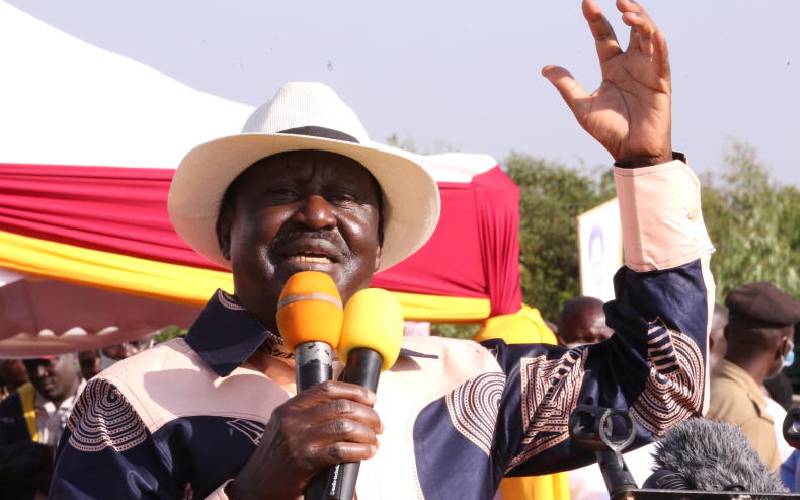×
The Standard e-Paper
Fearless, Trusted News

ODM leader Raila Odinga during the commissioning of Ugunja Kenya Medical and Training College in Siaya county on February 26, 2021.[Collins Oduor, Standard]
Raila Odinga is no stranger to setbacks in politics and before the courts. He has taken many hard knocks over the years and has frequently touched the canvass, only to come back and continue fighting, bloodied but unbowed.